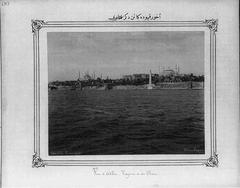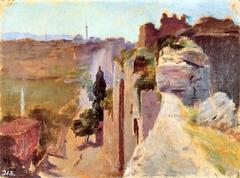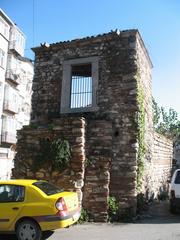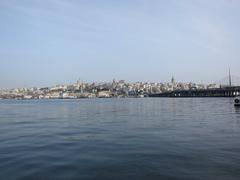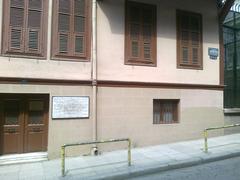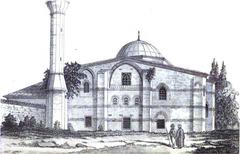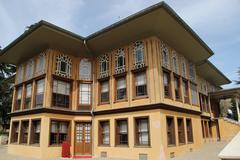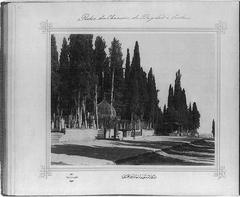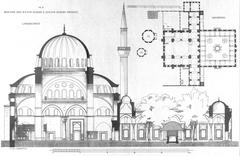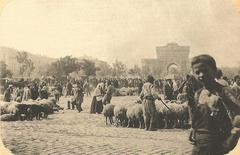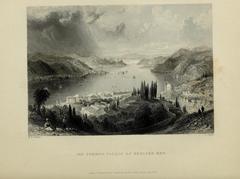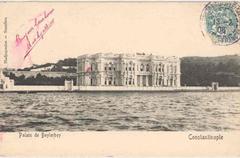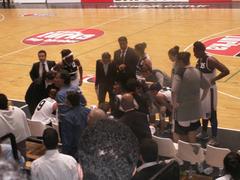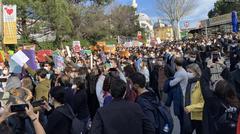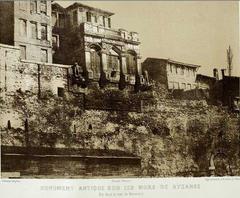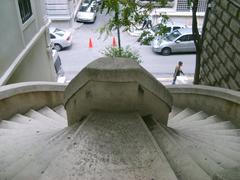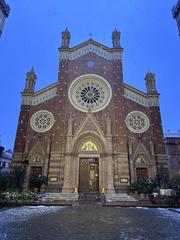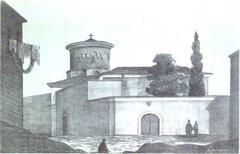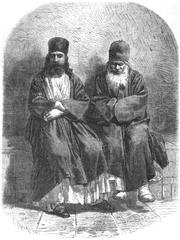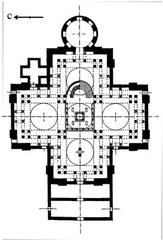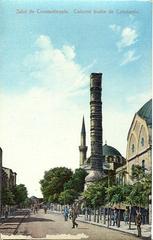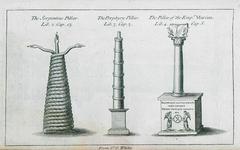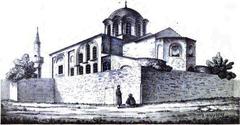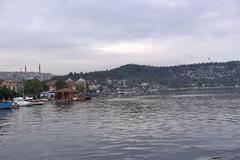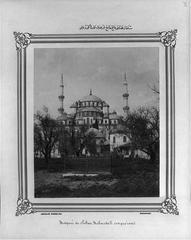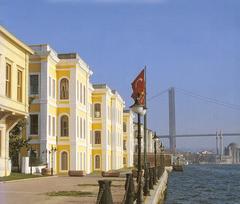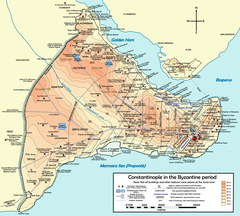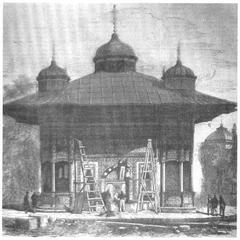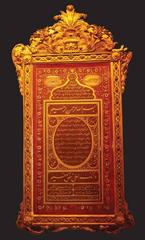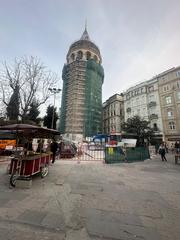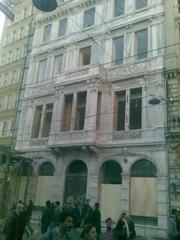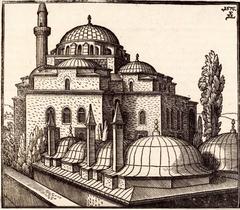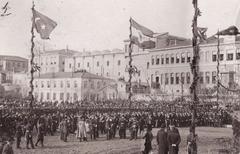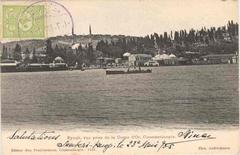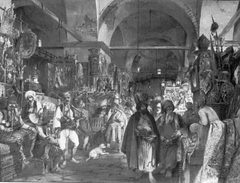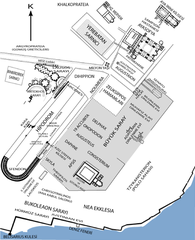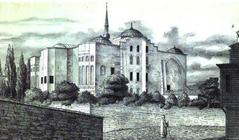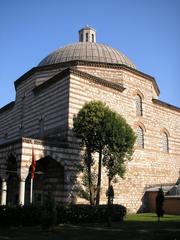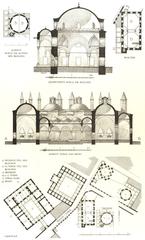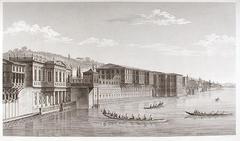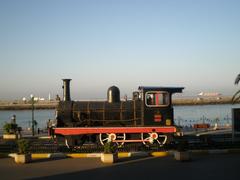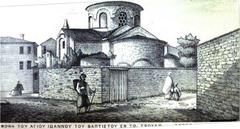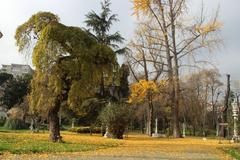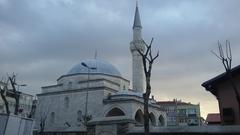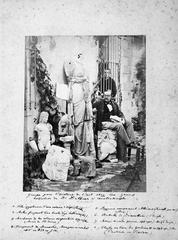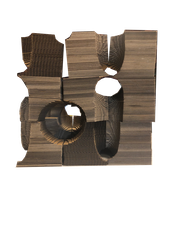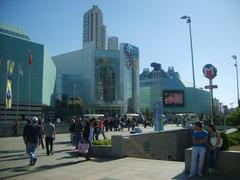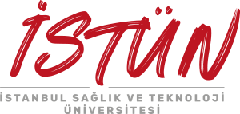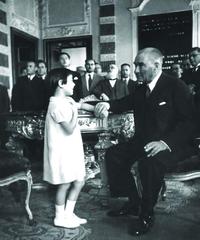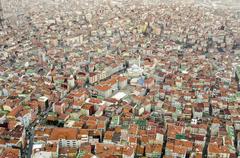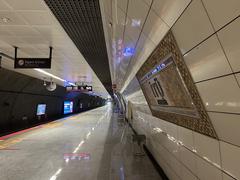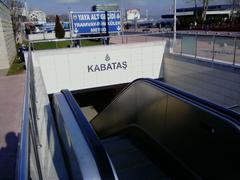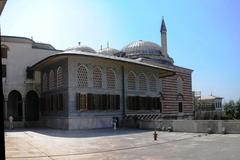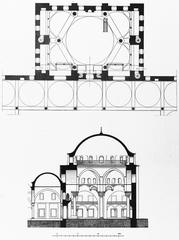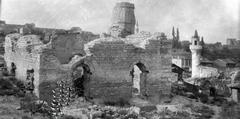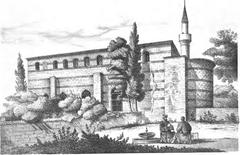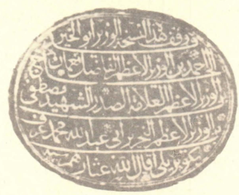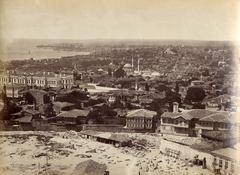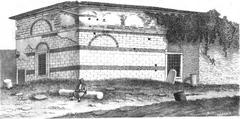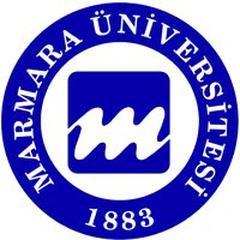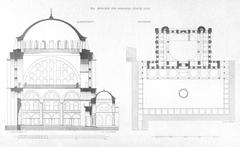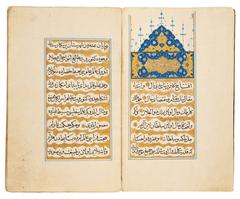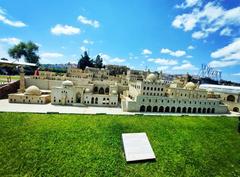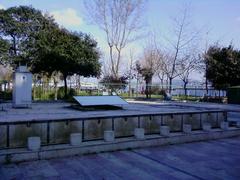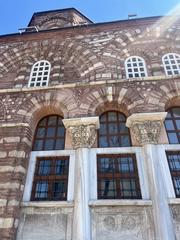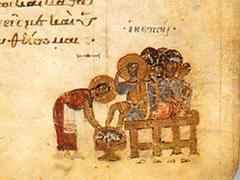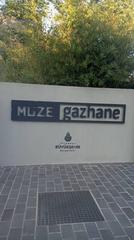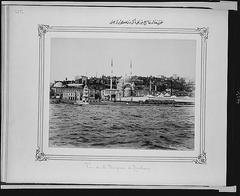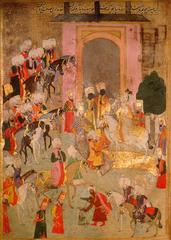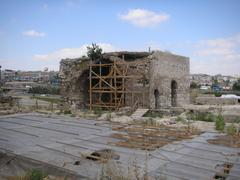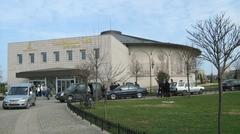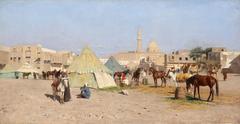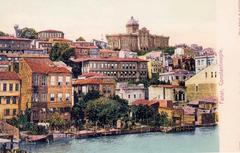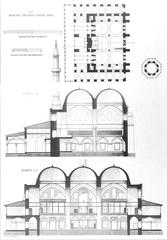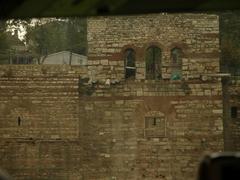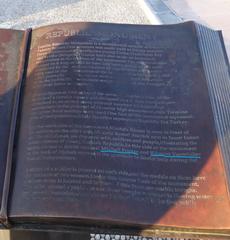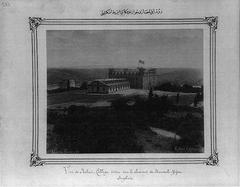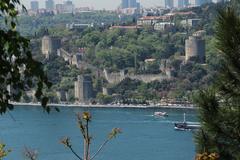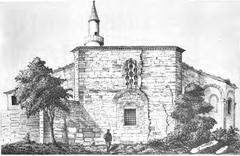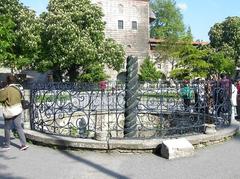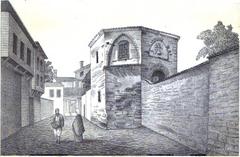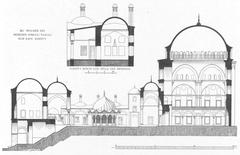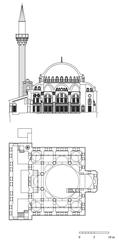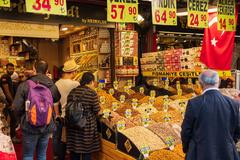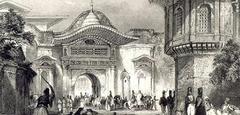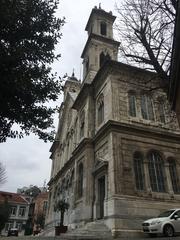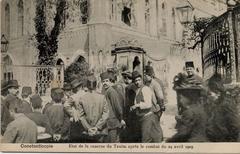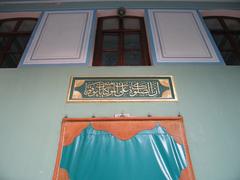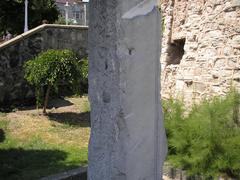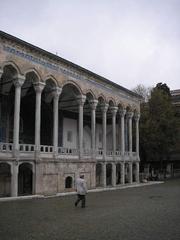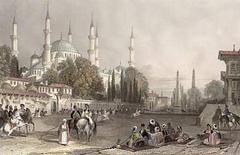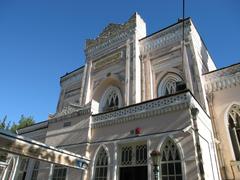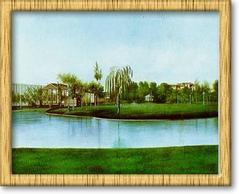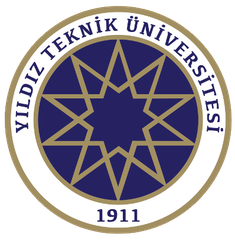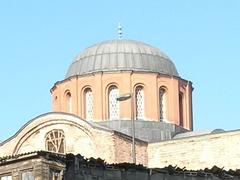Acıbadem Istanbul Historical Site: Visiting Hours, Tickets, and Tourist Guide
Date: 04/07/2025
Introduction to Acıbadem Istanbul Historical Site
Located on Istanbul’s Asian side, Acıbadem is a unique neighborhood where historical charm, thriving local culture, and world-class healthcare converge. Once a semi-rural area named for its almond trees (acıbadem means “bitter almond” in Turkish), Acıbadem has evolved into a modern district, renowned for the Acıbadem Healthcare Group and Acıbadem University (Wikipedia: Acıbadem, Üsküdar). Unlike the city’s more tourist-centric locales, Acıbadem provides a window into Istanbul’s authentic urban life, blending Ottoman-era architecture with contemporary living (thenandnows.com).
This detailed guide is designed for tourists, medical travelers, students, and culture enthusiasts. Inside, you’ll find historical context, practical travel advice, and information on key sites like the Validebağ Pavilion, a 19th-century Ottoman monument nestled in Validebağ Grove (Kadıköy Municipality). Whether you’re seeking healthcare, local culture, or off-the-beaten-path experiences, Acıbadem is a welcoming destination. The article also includes visitor tips, FAQs, and official resources to ensure a smooth and memorable visit (Acıbadem Healthcare Group; Istanbul Travel Guide 2025).
Table of Contents
- Welcome to Acıbadem Istanbul: A Historic Neighborhood and Healthcare Destination
- Cultural and Social Fabric of Acıbadem
- Visiting Validebağ Pavilion: Istanbul’s Ottoman-Era Gem
- Practical Information for Visitors
- Summary and References
Welcome to Acıbadem Istanbul
A Brief History
Acıbadem began as a tranquil, semi-rural suburb in the Üsküdar district, known for its almond orchards. Its peaceful setting attracted affluent Ottomans, who built summer mansions here in the 19th and early 20th centuries. Over time, as Istanbul expanded, Acıbadem transformed into a modern neighborhood. The opening of Acıbadem Hospital in 1991 established the area as a healthcare hub, drawing international patients and professionals.
Planning Your Visit: Hours, Tickets & Transportation
- Visiting Hours & Tickets: Acıbadem is an open, residential neighborhood and does not have designated visiting hours or entry tickets. For hospital visits or appointments, check with the specific facility.
- Getting There:
- Metro: M4 Kadıköy–Tavşantepe line (Acıbadem Station).
- Bus: Multiple routes from Üsküdar, Kadıköy, and other districts.
- Car: Close to Bosphorus bridges and main highways, with accessible infrastructure.
- Nearby Attractions: Üsküdar’s historic waterfront, Kadıköy’s vibrant markets, and scenic Bosphorus ferry rides are all within easy reach.
What to See and Do
- Healthcare Tourism: Acıbadem Hospital is internationally renowned, making the district a destination for medical travelers.
- Local Parks & Cafés: Relax in Acıbadem Park, enjoy Turkish tea in neighborhood cafés, and sample pastries from family-run bakeries.
- Architecture: Photograph the striking contrast of modern apartments and historic mansions that symbolize Istanbul’s urban evolution.
Tips & FAQs
- Language: Turkish is primary, but English is widely spoken in healthcare and tourism.
- Currency: Turkish Lira (TRY); cards are widely accepted.
- Safety: Acıbadem is family-friendly and safe.
- Events: Look for local festivals or health fairs posted by the Healthcare Group.
FAQs
- Q: Are there entry hours or fees?
- A: No; Acıbadem is freely accessible.
- Q: How to reach Acıbadem?
- A: Via M4 metro or bus from central districts.
- Q: Are guided tours offered?
- A: Some private operators may offer walks; check local listings.
- Q: Can tourists visit the hospital?
- A: For appointments or medical tourism, contact the hospital’s international office.
Cultural and Social Fabric of Acıbadem
Urban Identity & Historical Layers
Acıbadem reflects Istanbul’s rapid transformation, where Ottoman, Byzantine, and Republican influences coexist. The mix of new and old buildings highlights the city’s continued negotiation between preservation and progress (worldhistoryjournal.com). The neighborhood’s cosmopolitan yet local character is enriched by its proximity to Kadıköy and Üsküdar.
Community Life, Diversity, and Culinary Traditions
- Community Life: Parks like Acıbadem Park serve as social hubs, especially on summer evenings. Cafés and tea gardens are integral to daily life, with many businesses run by families rooted in the area (halaltimes.com).
- Diversity: While predominantly Muslim, Acıbadem is open and inclusive, participating in broader cultural events and festivals from neighboring districts.
- Culinary Scene: Weekly farmers’ markets (pazar) offer fresh produce and traditional delicacies. Dining options range from Turkish lokantas to international eateries, reflecting Istanbul’s rich gastronomic heritage (hushhostels.com; adventurefolio.com).
Arts, Education, and Civic Life
- Education: The area is home to reputable schools and cultural centers promoting lifelong learning.
- Arts: Local galleries and music schools host events, with residents also engaging in Kadıköy’s vibrant arts scene.
- Civic Engagement: Neighborhood associations and initiatives foster a sense of collective responsibility (visitturkey.in).
Festivals, Traditions, and Visitor Information
- Festivals: National and religious holidays, summer concerts, and Istanbul-wide arts events enliven the neighborhood (istanbeautiful.com).
- Visitor Information: Parks and mosques are open daily, generally free of charge. Respectful attire is required at religious sites. Guided walking tours including Acıbadem and neighboring districts are available through local agencies.
Visitor Tips
- Dress modestly at religious or cultural sites.
- Greet locals with “Merhaba.”
- Explore on foot for hidden gems.
- Use public transport for easy access to the rest of Istanbul.
Visiting Validebağ Pavilion: Istanbul’s Ottoman-Era Gem
History and Visitor Details
The Validebağ Pavilion (Validebağ Kasrı), built in 1853 for the mother of Sultan Abdülmecid I, is a prime example of 19th-century Ottoman architecture. Over time, it served various roles, including a royal residence and sanatorium. Its elegant woodwork and ornate interiors highlight the era’s craftsmanship (Kadıköy Municipality).
- Visiting Hours: Open to the public on weekends and during special events. Check the Kadıköy Municipality website for seasonal hours.
- Tickets: Generally free on open days; guided tours or exhibitions may incur a fee.
- Tours: Guided tours provide deeper historical context and are available via municipal or local operators.
Accessibility, Tips, and FAQs
- Getting There: A short walk from Acıbadem Metro (M4), also accessible by bus/minibus.
- Accessibility: Paved paths and ramps are provided, though some areas may be less accessible due to preservation needs.
- Nearby: Validebağ Grove, Acıbadem Mosque, Kadıköy’s cultural venues.
Visitor Tips
- Visit in spring or autumn for pleasant weather.
- English-speaking guides are usually available.
- Photography is allowed unless otherwise posted.
FAQs
- Q: Is there an entrance fee?
- A: Free on most days; some events may charge.
- Q: Are tours available?
- A: Yes, via Kadıköy Municipality or tour agencies.
- Q: Is the pavilion accessible?
- A: Basic accessibility is provided, but some historic areas may be limited.
Practical Information for Visitors
Getting There
- Public Transport: M4 Metro (Acıbadem Station), bus connections, and easy taxi access from both Istanbul and Sabiha Gökçen Airports (Tours to Turkey).
- Airport Transfers: Taxi rides from Sabiha Gökçen (30–40 min) and Istanbul Airport (up to 90 min). Apps like BiTaksi and Uber are recommended.
Accommodations
- Options include international hotels, boutique stays, and serviced apartments. Medical visitors can request assistance from the Acıbadem International Patient Center for lodging (Health Tourism).
Dining
- Turkish breakfasts, local pastries, and international cuisine are widely available. For authentic flavors, visit Kadıköy’s food markets. Halal and vegetarian options are easy to find.
Health & Safety
- The area is safe, with internationally accredited medical facilities and multilingual support. Pharmacies are common, with many open late or 24/7.
Money, Etiquette, Language, and Connectivity
- Currency: Turkish Lira. ATMs and credit cards are widely accepted.
- Etiquette: Dress modestly at religious or healthcare facilities, and bring a small gift when visiting homes.
- Language: Turkish; English is widely spoken in tourism and healthcare.
- Internet: Free Wi-Fi in hotels, public areas, hospitals, and universities. Local SIM cards are available at airports.
Medical Tourism & Seasonal Advice
- Appointments: Arrange through the International Patient Center (Health Tourism).
- Seasons: Spring and autumn are best for travel; summers can be hot, winters are mild but wet.
Frequently Asked Questions
- Q: What are the visiting hours for Acıbadem University and hospital?
- A: Typically Monday–Friday, 8:00 AM–6:00 PM; verify with the specific department.
- Q: How do I get to Acıbadem from the airport?
- A: Use airport shuttles, taxis, or ride-hailing apps.
- Q: Are vegetarian and halal foods available?
- A: Yes, especially in hospital cafeterias and local eateries.
- Q: Is English spoken?
- A: Widely, especially in health and tourist sectors.
- Q: Are there historical monuments in Acıbadem?
- A: The Validebağ Pavilion is the primary historical site; most other attractions are in nearby districts.
Visual Guide
Summary of Key Points
Acıbadem is a dynamic Istanbul neighborhood where history, healthcare, and culture intersect. Its transformation from rural almond groves to a thriving modern district mirrors Istanbul’s broader urban story. Visitors benefit from exceptional medical services, vibrant local life, and proximity to historic and cultural sites like the Validebağ Pavilion (Health Tourism; worldhistoryjournal.com). With easy metro and road access, Acıbadem is well-suited for families, medical travelers, and culture seekers alike (Tours to Turkey).
For up-to-date advice and personalized itineraries, download the Audiala app and visit official resources. Discover a side of Istanbul where tradition and innovation meet.
References and Useful Links
- Wikipedia: Acıbadem, Üsküdar
- History of Istanbul
- Acıbadem Corporate Information
- Istanbul Travel Guide 2025
- Istanbul History Portal
- Then and Nows: Istanbul Then and Now
- World History Journal: Istanbul - A Journey Through Empires and Eras
- Halal Times: How to Experience Istanbul Like a Local - A Guide for Muslim Travelers
- Hush Hostels: Local Culture Guide - Customs, Food, and Traditions in Istanbul
- Adventure Folio: Visit Istanbul Like a Local - Istanbul Travel Guide
- Visit Turkey: Living in Istanbul - A Comprehensive Guide for Foreigners
- Istanbul Beautiful: Top 10 Best Things to Do in Istanbul in July
- Kadıköy Municipality Official Site: Validebağ Grove and Pavilion
- Tours to Turkey: Istanbul Travel Guide 2025
- Health Tourism: Medical Centers - Acıbadem Maslak Hospital
- Advantour: Medical Tourism in Turkey
- Will Fly For Food: The First-Timers Travel Guide to Istanbul, Turkey

